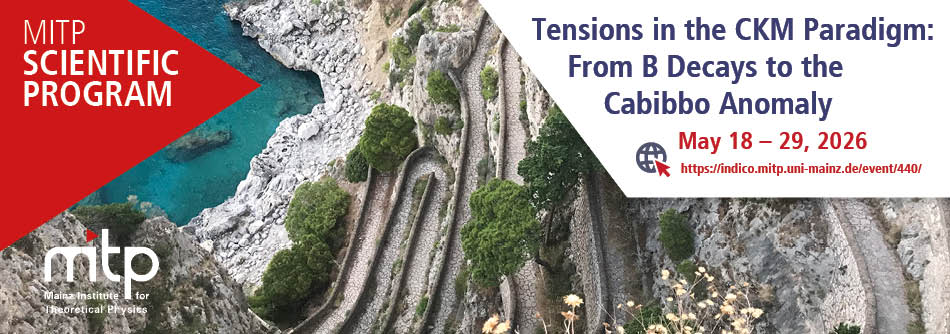The registration will close on 22 February 2026, 11:59 P.M. CET.
There are currently several hints of tensions in the Cabibbo–Kobayashi–Maskawa (CKM) paradigm for the description of quark-flavor-changing processes in the Standard Model of particle physics. These hints might point to the existence of some “new physics” in the form of new elementary particles with flavor-changing interactions, thus offering a glimpse into a new layer of fundamental constituents and forces beyond those described by the SM, with possibly far-reaching implications for profound puzzles such as the origin of the matter–antimatter asymmetry in the Universe and the existence of Dark Matter. However, a more benign explanation of the tensions could lie in the fact that currently available theoretical tools are not sufficiently accurate to match the precision of the experimental data. In this program, we will bring together an interdisciplinary mix of experts from various subfields of flavor physics, including heavy-quark expansions, lattice QCD, QCD sum rules, nuclear structure, and various effective field theories (SMEFT, LEFT, HQET, SCET, ChPT, nuclear EFT) to critically re-examine the current state of theory, also in light of recent experimental data, and develop strategies to further increase the accuracy of theoretical predictions. We will also invite a few experimentalists representing key experiments in the field (LHCb, Belle-II, NA62).

